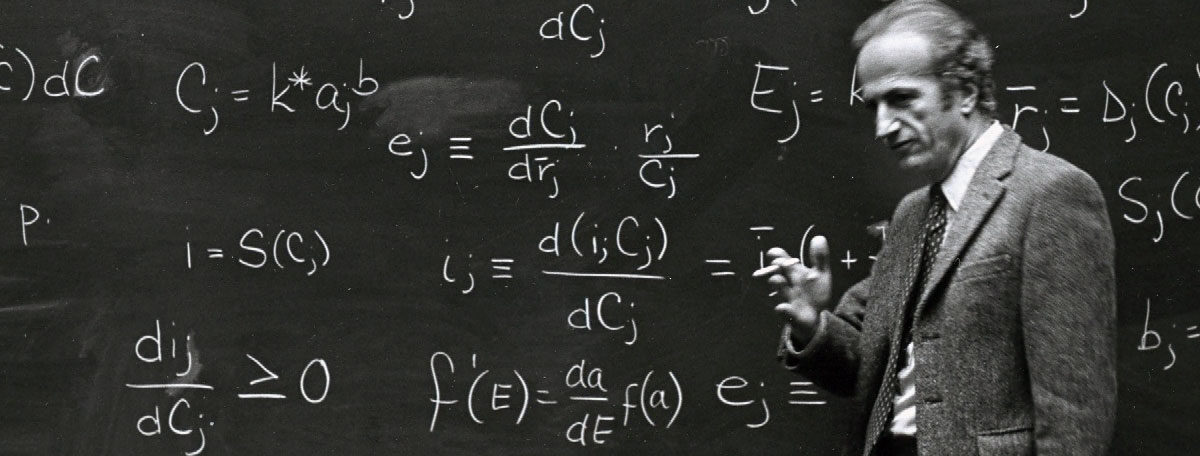
Should Gender Equity Include Diaper Changing Tables?
May 5, 2014
The Scrap Business is Underrated
May 7, 2014Gary Becker image courtesy of University of Chicago.
All too often, if you say you are looking at the economics of the family, people assume you are talking about money. Nobel Laureate Gary Becker, who died this week (1930-2014), changed all of that.
At econlife, we looked at stay-at-home dads and moms through a Gary Becker lens. From Dr. Becker’s perspective, the family is a production unit. Using land, labor and capital as inputs, the family raises children, prepares food, generates shelter and participates in communal activities. Sometimes, household members engage in a division of labor whereby “…members who are relatively more efficient at market activities would use less of their time at consumption activities than would other members.” Always though, “…when men and women decide to marry, or have children, or divorce, they attempt to raise their welfare by comparing benefits and costs.”
Explaining why he looked at crime, Dr. Becker said, “I began to think about crime in the 1960s, after driving to Columbia University for an oral examination of a student in economic theory. I was late and had to decide quickly whether to put the car in a parking lot or risk getting a ticket for parking illegally on the street. I calculated the likelihood of getting a ticket, the size of the penalty, and the cost of putting the car in a lot. I decided it paid to take the risk and park on the street. (I did not get a ticket.)”
As for “rotten kids,” his analysis looked at a household’s shared utility function and how the “rotten kid” would not want to diminish the total utility created by the altruistic head. He even brought Adam Smith into the picture when he said, “”…sufficient ‘love’ by one member leads all other members by an ‘invisible hand’ to act as if they too loved everyone.” And he wondered if “…programs such as social security that significantly help the elderly would encourage family members to drift apart emotionally, not by accident but as maximizing responses to those policies.”
One of the first economists to display that economics is an analytic perspective, Gary Becker enhanced our understanding of human behavior.
Sources and Resources: I’ve been quoting from The Essence of Becker (pp. 108, 165, 637). For more, I recommend his wonderfully human presentation of his bio at the Nobel site and John Cassidy’s New Yorker Magazine interview. And here and here, are the sources of our econlife excerpts.
![econlifelogotrademarkedwebsitelogo[1]](/wp-content/uploads/2024/05/econlifelogotrademarkedwebsitelogo1.png#100878)




